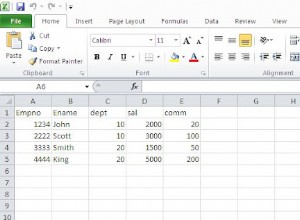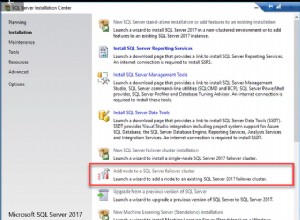Ich habe eine Lösung für diese Aufgabe geschrieben, aber ich bin kaum die einzige Person, die so etwas gemacht hat.
select concat('`', table_schema, '`.`', table_name, '`.`', column_name, '`') as `column`,
auto_increment as `current_int`, max_int, round((auto_increment/max_int)*100, 2) as `pct_max`
from (select table_schema, table_name, column_name, auto_increment,
pow(2, case data_type
when 'tinyint' then 7
when 'smallint' then 15
when 'mediumint' then 23
when 'int' then 31
when 'bigint' then 63
end+(column_type like '% unsigned'))-1 as max_int
from information_schema.tables t
join information_schema.columns c using (table_schema,table_name)
join information_schema.key_column_usage k using (table_schema,table_name,column_name)
where t.table_schema in ('test')
and k.constraint_name = 'PRIMARY'
and k.ordinal_position = 1
and t.auto_increment is not null
) as dt;
https://github.com/billkarwin/bk -tools/blob/master/pk-full-ratio.sql
Diese Abfrage ist für den test fest codiert Schema, also müssen Sie es für Ihr eigenes Schema bearbeiten.
Die kurze Antwort auf die Frage "wird mein Primärschlüssel überlaufen?" ist, es einfach in BIGINT UNSIGNED zu ändern jetzt. Das wird sicherlich bis zum Zusammenbruch der Zivilisation dauern.
Im selben Git-Repo habe ich ein weiteres ähnliches Skript, um alle zu überprüfen Integer-Spalten, nicht nur Primärschlüssel mit automatischer Inkrementierung. Aber es ist nicht so wichtig für andere Spalten.




